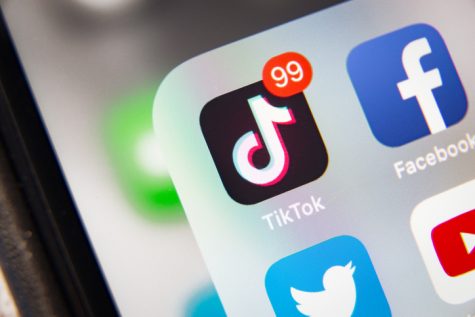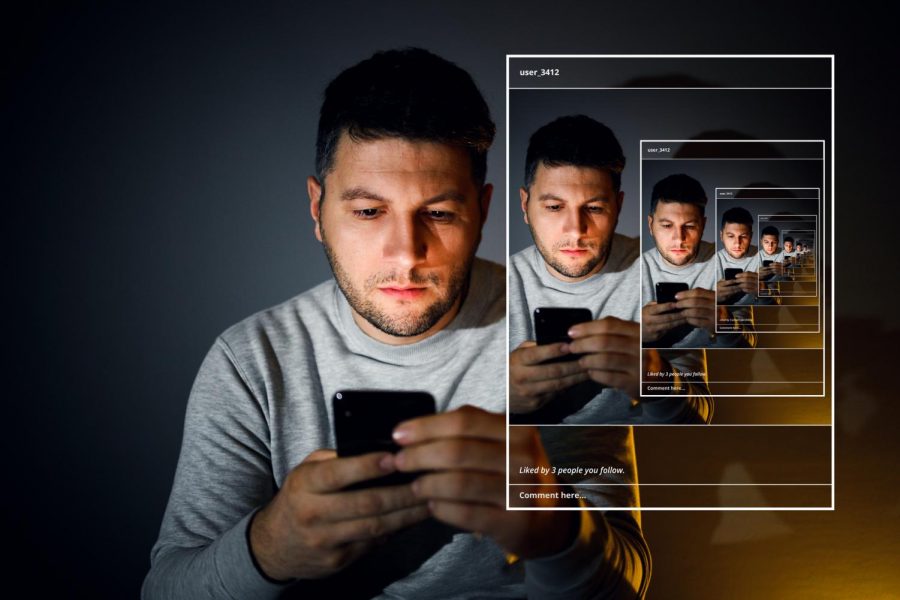Social media too consuming
February 26, 2021
Social media plays out that the role is bigger in my life than even I am even aware of, and that may also be true for the masses.
I find myself reaching for my phone instinctually as if it’s a part of me. I’m not expecting any important messages, but that does not stop me from checking my phone or opening up an app every 10 minutes. As I scrolled mindlessly through Instagram until something jumped out at me, and it’s still stuck on my mind. In fact, it has inspired me to make a change in my social media habits and indulge less in the act of these seemingly endless, pointless, scroll-fests.
When I came across a picture of a book posted on Instagram titled “Ten Arguments for Deleting your Social Media,” it felt as if I was called upon personally to reflect on the role that social media plays in my life.
I deleted my social media apps once before during the summer break of 2018, and it was the best summer of my life. It changed the way I spent and valued my time. Removing social media took my attention away from what everyone else was up to so I was able to focus more on myself. It forced me to sit with my thoughts and the present moment every time I found myself in a waiting room or as a passenger in the car. Social media can be an addiction just like anything else, and the best way to overcome it is to detox.
This time, I started off by deleting the two social media apps that I used daily — Facebook and Instagram. Afterward, I made a farewell post to my followers with a picture of my “to read” stack of books. I set intentions for what I wanted to focus on in place of social media. Setting intentions for my time allowed for a smooth transition and helped me to forget about social media almost entirely. My intentions were to read more, write more; and focus on my academic and artistic interests. I submerged myself completely into my passions and the results allowed me to be the happiest version of myself that I had ever known.
My break from social media was the most tranquil time of my life thus far. It almost seems like a dream. My “social media free” morning routine is to make a cup of coffee and start the day under the sun on the back deck while writing my daily journal entries. After writing at least three pages, I move on to the current book I was reading, scratching notes inside the margins along the way. I felt this calmness and clarity that I have yet to achieve through anything else other than meditation.
Once a few weeks had passed without having an urge to reach for my phone, it felt like a mental chain had been broken. I was free to sit and think. My thoughts were no longer influenced by users’ posts or opinions.
Social media users don’t reflect enough on how these platforms obtain the power to alter our thoughts and opinions on the world. They change how we see ourselves and our neighbors as well.
Photos, posts, and profiles have become a way for users to project a version of themselves to the public. We compare ourselves and our lives to one another. But when this behavior becomes an ongoing cycle, we must draw attention to the potential psychological effects of social media.
According to a study published in The US Library of Medicine, there is evidence that technology-based social comparison and feedback-seeking behaviors may be associated with depressive symptoms among adolescents, controlling for overall technology use, prior depressive symptoms, and offline ERS (excessive reassurance seeking).”
It’s important to remember that these waves of information cannot be taken at face value. With today’s advances in marketing and advertising, the internet works like a large and boundless net for catching and reeling in all kinds of consumers. A Pew Research study found that about 64% of Americans say social media has a negative effect on the way things are going in the country today.
There is an endless sea of data accessible from our pockets, and it’s become our lifeline. We must recognize how often we use social media and how much its content influences our lives, time, and decision-making.




